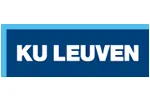We're moving! This site will be relocating to goingto.university in 2026. Please update your bookmarks to the new address.


| The award | How you will study | Study duration | Course start | Domestic course fees | International course fees |
|---|---|---|---|---|---|
| MSc | Full-time | 1 year | September | - | - |
The space sector plays an important role in economic, social, technological and scientific developments. The future of the sector and its manifold applications require highly skilled experts with a broad interdisciplinary perspective. The development of innovative space technologies is fostered by an intense symbiosis between the technological sectors and the challenges set by fundamental research in exact and biomedical sciences.
What is the programme all about?
The Master of Space Studies programme is designed to prepare scientists to respond to a myriad of challenges and opportunities within the space sector. The large scale of space projects imposes important constraints on management and requires a truly international response with accompanying European and international legal and political measures.
You will learn, through interaction with industry, the skills necessary to compete for employment and research opportunities from among the broad applications of the space industry, including security and defence. In addition to coursework in space sciences, the curriculum is enriched by a master's thesis and a series of guest lecturers from international, national and regional institutions.
Structure
The interdisciplinary nature of the programme is expressed by the common core of 25 ECTS in introductory coursework. These courses are mandatory for every student. They’ll acquaint you with the different aspects that form the foundation of space-related activities.
Domain-specific optional courses, for a total of 20 ECTS, covering the domains of (A) Space Law, Policy, Business and Management, (B) Space Sciences and (C) Space Technology and Applications, are available to broaden your knowledge with the possibility of combining the latter two.
The master’s thesis (15 ECTS), you’ll be embedded in a research team of one of the organising universities, or in an external institute, organisation or industrial company. The master’s thesis is the final section of the interdisciplinary programme, in which the acquired knowledge and abilities are applied to a complex and concrete project.
Strengths
The mission of the Department of Physics and Astronomy is exploring, understanding and modelling physical realities using mathematical, computational, experimental and observational techniques.
KU Leuven Online Open Day
Discover KU Leuven and its wide range of degree programmes at our Online Open Day! For more information, head to www.kuleuven.be/onlineopendays
Below are some suggested courses at other providers that you may also be interested in:
Marketing Management - Digital Business Concepts Bachelor Degree
Fontys Economy Tilburg
Find out moreAdvanced Bachelor of Bioinformatics Advanced Diploma, Bachelor Degree
Howest University of Applied Sciences
Find out moreExecutive Logistics and Supply Chain Management MSc, PG Cert, PG Dip
Cranfield School of Management
Find out moreIf you do not meet the entry requirements for this course then consider one of these postgraduate preparation courses from another institution:
Graduate Diploma of Engineering (Electrical Systems)
Engineering Institute of Technology
Find out moreThere are 123 other courses listed from KU Leuven. A selection of these are displayed below:
Join the StudyLink email list and never miss a chance to turn your study abroad dreams into reality!
